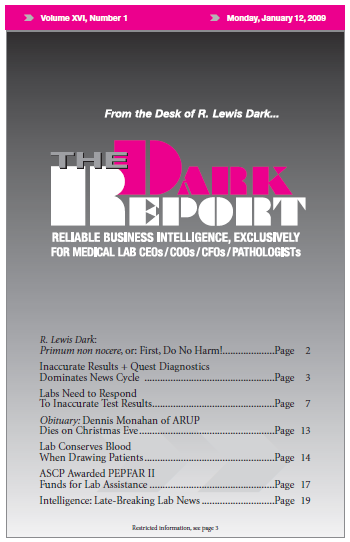CEO SUMMARY: With new Congressional authorization and funding of $48 billion, PEPFAR II—a second five-year initiative to help targeted countries battle HIV, AIDs, tuberculosis, and malaria—is about to get under way. To better support diagnosis and management of HIV/AIDs patients, some PEPFAR funds are designated to expand laboratory testing services in countries with high prevalence …
ASCP Awarded PEPFAR II Funds for Lab Assistance Read More »
To access this post, you must purchase The Dark Report.


